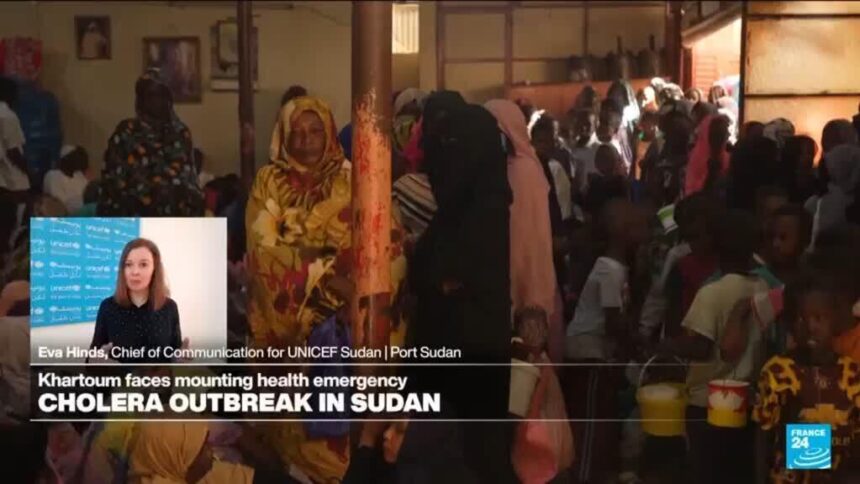A cholera outbreak in Sudan’s war-torn capital has claimed the lives of 70 individuals in just two days, according to health officials. The situation in Khartoum is rapidly deteriorating as the city grapples with a mounting health crisis following more than two years of devastating conflict.
The recent spike in cholera infections comes in the wake of drone strikes that targeted water and electricity supplies in the capital, which have been attributed to the paramilitary Rapid Support Forces. This has further exacerbated the already dire situation in Khartoum, which has been a hotbed of violence during the prolonged conflict between the Sudanese army and the RSF.
To shed light on the gravity of the situation and provide expert insight, FRANCE 24 has invited Eva Hinds, Chief of Advocacy and Communication for UNICEF Sudan, to offer a comprehensive analysis of the ongoing crisis.
The outbreak of cholera in Khartoum underscores the urgent need for humanitarian intervention to address the health emergency gripping the city. With infrastructure already severely compromised by the conflict, the spread of infectious diseases like cholera poses a significant threat to the population’s well-being.
UNICEF Sudan, along with other aid organizations, is working tirelessly to provide medical assistance, clean water, and sanitation services to those affected by the outbreak. However, the scale of the crisis requires a coordinated effort from the international community to stem the tide of infections and prevent further loss of life.
As the situation in Khartoum continues to unfold, it is imperative that swift action is taken to mitigate the impact of the cholera outbreak and ensure the health and safety of the city’s residents. Through collaborative efforts and collective support, we can work towards containing the spread of the disease and alleviating the suffering of those affected by the ongoing crisis.








